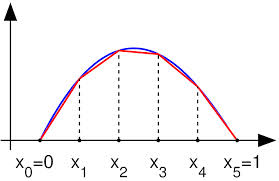记忆方法
将“finite”分解为“fin”和“ite”,想象自己用一个“fin”(鱼尾)在“ite”(小石头)上轻轻一划,代表线条或边缘的结束,从而形象地记住“finite”表示“有限的”或“有边界的”。
以上内容由AI生成, 仅供参考和借鉴
中文词源
finite 有限的
来自拉丁语finis, 终结,边界,词源同finish.引申义有边界的,有限制的。
英语词源
- finite (adj.)
- early 15c., "limited in space or time, finite," from Latin finitum, past participle of finire "to limit, set bounds; come to an end" (see finish (v.)). Related: Finitely; finiteness.
权威例句
- 1. The fossil fuels (coal and oil) are finite resources.
- 化石燃料(如煤和石油)属于有限资源。
- 2. The physical universe is finite in space and time.
- 物质世界在时间和空间上是有限的。
- 3. a finite number of possibilities
- 为数有限的可能
- 4. These are the finite forms of a verb.
- 这些是一个动词的限定形式.
- 5. Human understanding is finite.
- 人的理解力是有限的.
